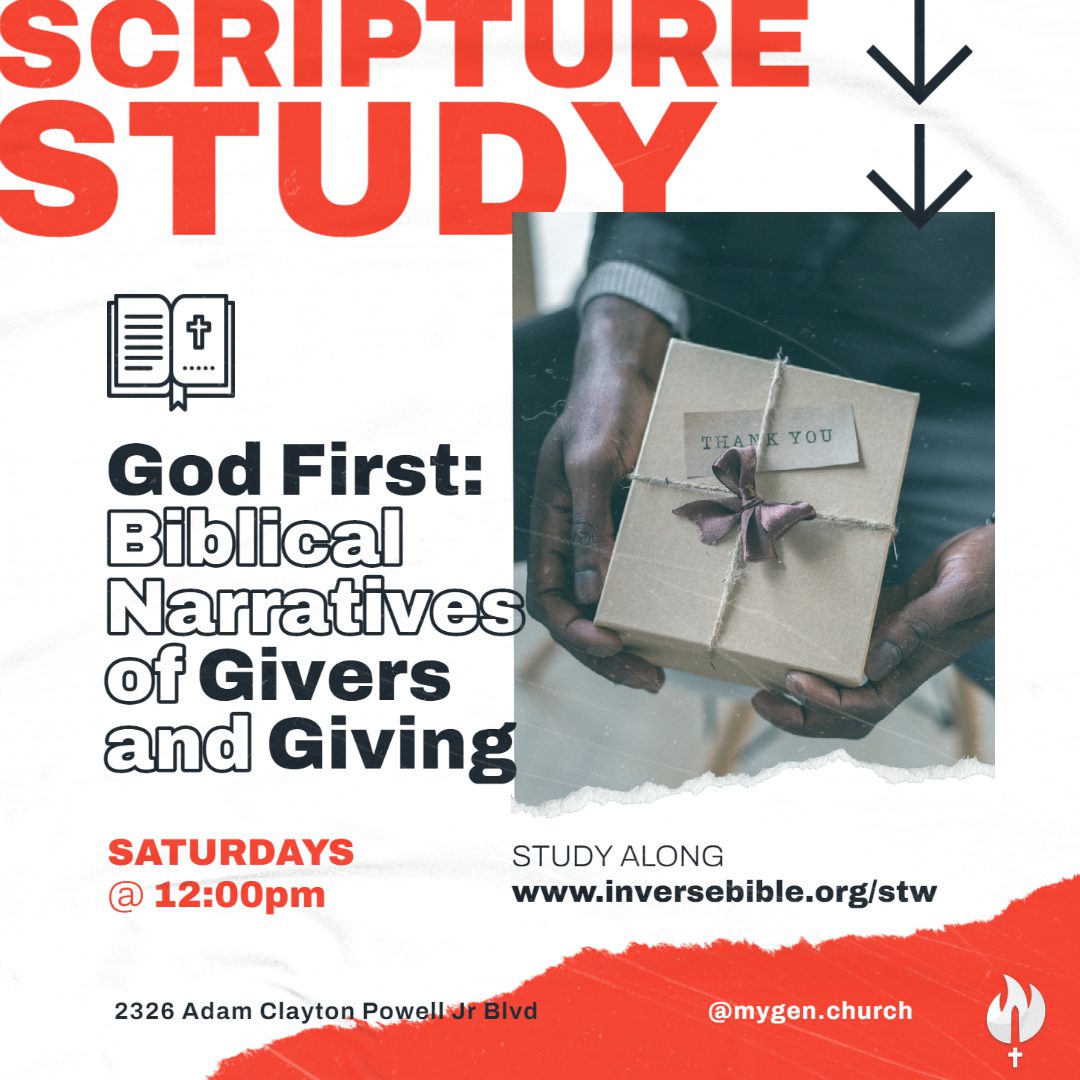
God First: Biblical Narratives of Givers and Giving
Introduction
Biblical narratives are powerful ways to express God’s instructions and admonitions. Referring to the Old Testament stories, Paul says that “everything that was written in the past was written to teach us, so that through the endurance taught in the Scriptures and the encouragement they provide we might have hope” (Rom. 15:4, NIV).
Accounts like those covered by this Bible study guide should be considered especially important for those who live in the time of the end. Continuing to reference Bible stories, Paul tells us that “all these things happened to them as examples, and they were written for our admonition, upon whom the ends of the ages have come” (1 Cor. 10:11).
It is not by chance that many biblical narratives are related to giving. During the next 12 weeks we will focus on selected narratives for their altruism, generosity, and liberality. These are all virtues related to giving and are inherent attributes of God’s character. Those same virtues are supposed to be found in His worshippers, in those who profess to walk with Him. Their absence is an indication of a mistaken spiritual experience. As we will see in this lesson, giving becomes a gauge for the spiritual life.
Through spiritual giving—the act of giving to God as an act of worship—the character is developed. Men and women have the privilege to become like their Creator. It is interesting to note that it was only after the Fall that returning tangible things to God as an act of worship became mandatory for His children.
This indicates that this kind of giving was instituted by God as part of the plan of redemption, and as a reminder of His ability to give and to provide. It becomes not only a test of allegiance but also a crucial educational tool in the process of restoring God’s image in humankind. Ellen G. White says that “God planned the system of beneficence, in order that man might become like his Creator, benevolent and unselfish in character, and finally be a partaker with Christ of the eternal, glorious reward.” (Counsels on Stewardship [Washington, D.C.: Review and Herald Publishing Association, 1940], 15.)
It is a law of the mind that the recipients of our tangible goods have the power to draw our affections (Matt. 6:21). For this reason, as we will see in the sad accounts of Ananias and Sapphira and of the rich young ruler, Satan tries to allure even God’s children to invest their goods in this world, becoming lovers of the world and of the things of the world (1 John 3:15–17), while professing to love God.
On the other side, God uses spiritual giving—an act of worship, something distinct from donations—to attract His children’s hearts to heaven and to Himself. This kind of worship should then be performed according to the specifications of Him who is worshipped, not according to the inclinations of the worshipper. The stories of Cain, Ahaz, Jeroboam, Ananias and Sapphira, and the rich young ruler will attest the nefarious results of ignoring His stipulations about giving.
Satan is always inducing people not to give. When giving is avoided, and the pursuit of acquiring things becomes the leading principle in life, God’s character cannot be formed in the human heart, happiness cannot be found, and misery and death are the result. “The principle of the worldlings is to get, get,” says Ellen G. White, “and thus they expect to secure happiness; but, carried out in all its bearings, the fruit is misery and death.” (Counsels on Stewardship, 14).
When Satan cannot stop God’s children from giving, he then stimulates them to believe that they are owners of their goods, and that they give as a favor to the church or God—frequently as a way to earn merit. Nevertheless, when Christ’s sacrifice is not discerned and/or accepted, the simple act of giving does not have the power to change the heart and convert the soul. On the contrary, it may even lead to perdition, as in the case of Ahaz. His liberal giving patterns led him to offer extremely costly sacrifices, even the life of his own son, but as an act of devotion to demons.
Giving as an exercise of trust and as an act of worship, regular and systematic giving, the “God first” principle, and the temple and storehouse system are among the themes with crucial implications for God’s children, who live in the time of the end. Those subjects will be found in many of the selected narratives for this Bible study guide. Their study is intended to motivate character development and prepare a people to meet their Lord in the clouds of heaven. “Even so, come, Lord Jesus!” (Revelation 22:20).
Weather





